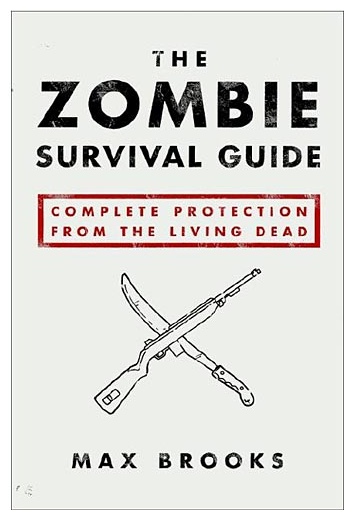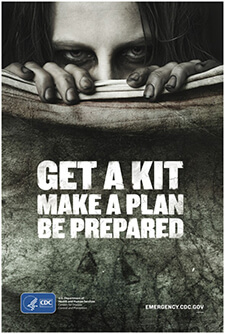Best Tips for Surviving the Cold
The human body, if unprotected, is not capable of surviving extremely cold weather. For the unprepared and unskilled, cold weather can be deadly. With the change of seasons, Mother Nature can be cruel and heartless. Not to mention the fact that a lot of zombie apocalypse scenarios start with a nuclear winter. To survive cold weather, you need to be properly prepared. In this post, we will show you how you can survive cold weather.
Frostbite survival
If water molecules freeze in your skin cells, it is called frostbite. The cells quickly die if they freeze. It causes nervous system damages, and they are often irreversible.
You may develop frostbite even if you stay in a temperature of -5 degrees, and 10 MPH wind for just 30 minutes. When it comes to surviving the cold, it is a very important piece of information to know.
And you can develop frostbite if the temperature is -15 degrees and the wind is 50 MPH. Blizzards are very dangerous, and you should take proper precautionary measures. Mountain climbers are more prone to frostbite, because they often get caught on a mountain.
In most cases, frostbite depends on the wind. If there is no wind, frostbite will take a very long time to develop. But frostbite can become deadly with high winds. If you get caught in a blizzard, your first priority should be to find a shelter.
The early sign of frostbite is known as frostnip. If you want to reverse the effect, you must use your survival skills. Rewarming the area is a simple and effective way to do that. When it comes to surviving the cold, rewarming is one of the simplest and most effective things to do.
For example, if you notice that your fingertips are developing frostbite, place them under your armpits. Chances are that your fingertips will get warm within a short time.
Hypothermia survival
You enter hypothermia when the temperature of your body is less than 95 degrees Fahrenheit. In this state, your essential body organs can not function properly due to low temperature. To function properly, your body should have a temperature of around 98.5 degrees Fahrenheit.
By vital organs, we mean brain, heart, lungs and kidney. You can stay alive only if all these organs function properly. But when you enter hypothermia, you will find it hard to be self-aware. When we talk about surviving the cold, hypothermia is one of the most important issues to talk about.
That is why you have to know the signs of hypothermia. When you develop mild hypothermia, you have symptoms such as lack of coordination, and shivering.
But when you start developing severe hypothermia, you have symptoms such as weak pulse, unexplained heat, low energy, and slurred speech. Once you start experiencing these symptoms, it may not be possible to reverse the effects.
However, you can take some actions to minimize risks. Here are the steps you can take:
Avoid getting wet
Getting wet in cold weather is the worst case scenario. You will be in a critical position if your cloths get wet. You will quickly develop hypothermia. That is why you should always try to avoid getting wet.
Put off wet cloths immediately
You can quickly develop hypothermia if it is extremely cold and your cloths are wet. Do not let your body temperature plunge. What can you do in this situation? Get naked, seriously. This is the best way to avoid hypothermia if your cloths are wet.
Soon you will be dead if you do not put off your wet cloths. After removing the wet cloths, wear some dry cloths. If you do not have dry cloths, wear blankets. To warm up your body, you can try jumping.
In such a situation, every second counts. That is why you build a fire as quickly as possible. Monitor your pulse, breathing, and other signs of life. When it comes to surviving the cold, you must try to understand what is going on inside your body.
Once you have been successful in building a fire, warm some water. Placing your metal bottle in the fire is an easy way to do that. If you do not have enough water, you can fill the bottle with snow.
Once the bottle is warm, you will get some warm water. Wrap the bottle in dry cloth and store the remaining water. It is nice if you can keep the bottle next to your chest and neck.
Stay fueled
If you stay fueled, you will be able to avoid hypoglycemia. In extremely cold weather, your body converts energy into warmth. Uncontrollable shivering is a result of this process. When you are shivering, your body is creating heat by using energy.
When you are in a survival situation, your body will become severely stressed. A stressed body uses fat to produce energy. But your body can not function properly only with this energy. In cold weather, it is in fact a waste of energy.
Soon your body’s energy will be depleted, and you will feel lethargic. If your body’s level of carbohydrate drops severely, you will have to deal with hypoglycemia. In that case you will experience cardiac arrhythmias and mental confusion.
You will be able to avoid hypoglycemia if you eat plenty of carbohydrates and simple sugars. In a survival situation, snacks can be very useful.
Stay hydrated
In cold weather, dehydration can be another problem. However, it is a less-know condition because dehydration is normally associated with hot weather. But your body can experience dehydration when you are in cold weather.
Even if you body needs water, you will not realize it in cold weather, and that can be a real issue. To make sure that your nervous system functions properly, you must stay hydrated.
A good thing about cold weather is that you will easily find snow. You can melt this snow and get water. Your own body heat can be used to melt it. But you must take care when doing that, because it may exacerbate hypothermia.
Use layers of clothing
Make sure your skin is not exposed in cold weather. Unlike animals, we do not have fur, and that is why we must use layers of clothing. In a life-threatening situation, you can ensure safety by using appropriate clothing.
Your clothing must be clean. Through insulation, the core temperature of your body can be regulated. You can warm up your body quickly by simply wearing a pair of socks. Make sure you pack a pair of socks when you are preparing for the trip.
Try to avoid overheating, because you will begin to sweat if your body overheats. Surviving the cold is easier if you know this fact.
Make sure your clothing is loose and layered. Slow circulation can be prevented by wearing loose clothing. When you are scavenging for water and food, you may need to deal with overheating. Once you begin to overheat, just shed a layer or two.
If you take the measures discussed in this post, you will not find it very hard to survive in cold weather. And if you succeed in surviving the cold, you will always cherish the memory.



